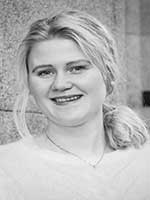Due to copyright issues, an electronic copy of the thesis must be ordered from the faculty. For the faculty to have time to process the order, the order must be received by the faculty at the latest 2 days before the public defence. Orders received later than 2 days before the defence will not be processed. After the public defence, please address any inquiries regarding the thesis to the candidate.
Trial Lecture – time and place
See Trial Lecture.
Adjudication committee
- First opponent: Professor Andreas Hensel, University of Münster, Germany
- Second opponent: Professor Jóna Freysdóttir, University of Iceland, Iceland
- Third member and chair of the evaluation committee: Professor Guttorm Haraldsen, University of Oslo
Chair of the Defence
Professor II Shuo-Wang Qiao, University of Oslo
Principal Supervisor
Professor Marit Inngjerdingen, University of Oslo
Summary
Medicinal plants may be sources for novel medicinal compounds. There is a continuous need for new immunomodulatory medications to treat cancer or autoimmune diseases, and we therefore set out to investigate whether we could identify new such compounds from Scandinavian medicinal plants.
Historical records from the early 20th century were used to identify usage of medicinal plants in Scandinavia against indications such as inflammation, upper airway infections and gastrointestinal symptoms. 79 plants were identified, and 23 of these were selected for further studies based on few previous studies. Chemical extraction and fractionation were done to give a crude extract, and two polyphenol and polysaccharide enriched fractions. These samples were tested using immunological assays to assess their effect on immune cell functions. Human fecal cultures were used to test effects on the human microbiota, and mice intestinal organoids were used to test the effect of the bacteria metabolites and plant extracts on gut epithelial cells.
We generally observed an immune stimulatory effect with the polysaccharide enriched fraction compared to the polyphenol enriched fraction. An exception was polyphenols from D. mezereum that were the most potent immune stimulatory substances. We found novel anti-inflammatory compounds by replicating the traditional preparation of Gentiana purpurea roots, and observed a specific immune activating effect in the pectic heteropolysaccharides found in A. archangelica subsp. Archangelica. For the polyphenol fraction of D. mezereum, we also observed a strong positive effect on the gut microbiota and a protective effect on the gut epithelial layer, indicating a potential use as a novel prebiotic.
Additional information
Contact the research support staff.
